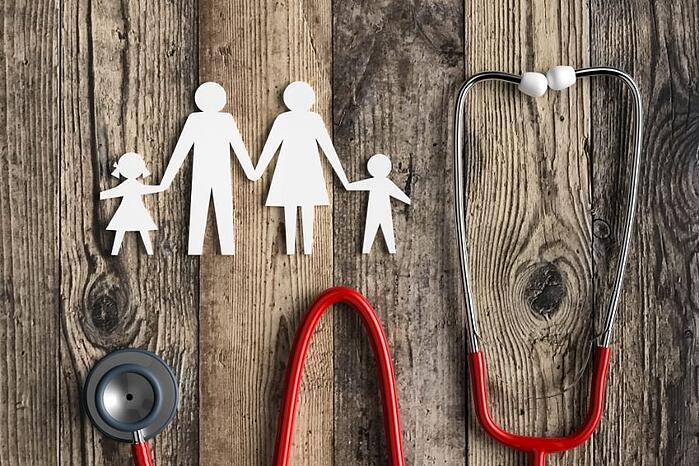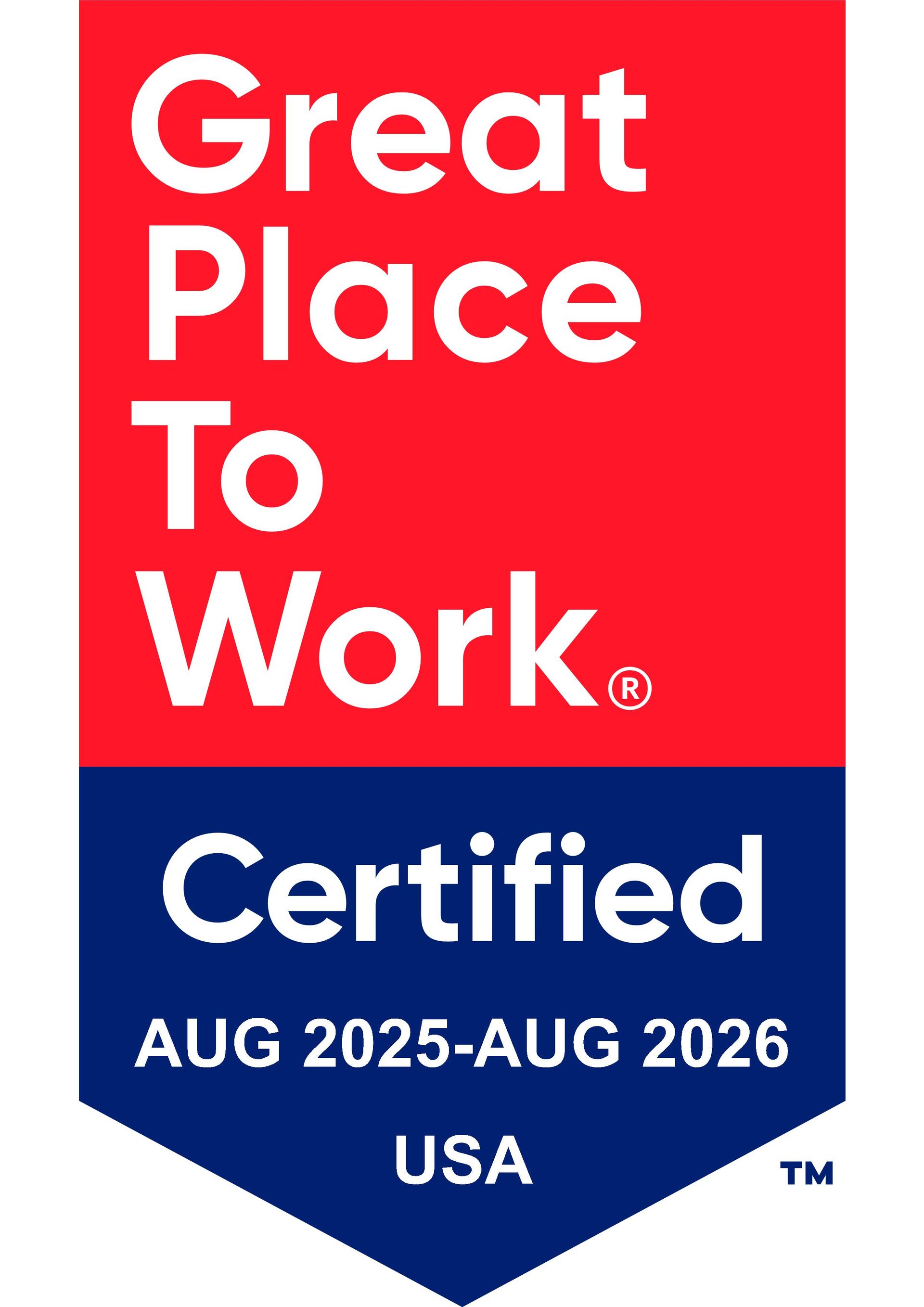
Insurance Needs for Each Generation
4 February 2022

Employee benefits are a key consideration when candidates are reviewing job offers. Medical benefits, paid time off, paid holidays, and a 401k or retirement plan are just a few of the benefits employees have come to expect.
In today's world, organizations are faced with the challenge of meeting the benefit needs of a multi-generational workforce: Baby Boomers, Generation X, Millennials, and Generation Z. How can a business provide benefits to meet the needs of all generations and remain competitive?
Clearly, it's not an option to offer different benefits to different generations due to the risk of discrimination claims. It is possible, though, to personalize benefits so that employees have options for the benefits they have to choose from.
Read on to learn about the differences between what's essential to insurance needs for each generation to gain some insight into approaching employee benefit planning moving forward.
INSURANCE NEEDS FOR EACH GENERATION - FROM OLDEST TO YOUNGEST
BENEFITS FOR BABY BOOMERS
Born between 1946 and 1964, many baby boomers are retired. However, some are choosing to work into their sixties and seventies. As such, boomers still need to be considered when planning employee benefits packages.
It's no surprise that Boomers are focused on retirement and healthcare. According to a 2020 MetLife report, 70% of Boomers indicated that a 401k or another retirement plan was a must-have. In addition, 83% indicated prescription drug coverage as a required option. In a separate MetLife report, as reported by Employee Benefit News (EBN), 90% of Baby Boomers 51 to 64 years of age indicated healthcare was a top priority, with a decline in importance when they reached 65 and became eligible for Medicare.
Many Boomers work part-time, making them ineligible for the standard benefits package with most employers. It's wise to consider offering other wellness benefits, such as gym memberships, mental health services, and discounts on other health-related services for this population.
BENEFITS FOR GENERATION X
Born between 1965 and 1980, Generation X has the most work experience behind Boomers, making them vital to the heartbeat and livelihood of an organization. Due to their needs to care for children or aging parents or both, financial support and flexibility are essential to this generation.
In one report, a 401k or other defined contribution plan is reported as a must-have for 72% of Generation X, and prescriptions drug coverage is a must-have for 77%. Thus, benefits focused on retirement planning and healthcare are important to Generation X, as are flexible schedules, remote work options, and caretaking benefits. It's also worth noting that Gen Xers often feel as if they're forgotten about when it comes to career development, so offering training and career development options for this population within your organization is a smart move, as well.
BENEFITS FOR MILLENNIALS
Born between 1981 and 1995, Millennials make up the majority of the labor force. As Millennials have gotten older, their benefits needs have shifted over the past couple of years. Many are now reaching the age of 26, meaning they can no longer be on their parent's health insurance plans. Therefore, where they once prioritized vacation and time off as higher than healthcare, healthcare is becoming more of a priority.
Millennials also have student loan debt, are purchasing homes, and are at the early stages of expanding their families. These factors make financial and work-life balance benefits vital for this generation. According to MetLife, 68% of Millennials indicate that a 401k or other defined contribution retirement plan is a must-have from employers, and 29% want student debt assistance. Offering retirement plans, financial guidance, caregiver leave, flexible working arrangements, and student loan repayment benefits are good options for Millennials.
In conjunction with traditional benefits, employers should consider training and development benefits for Millennials. According to Gallup, 87% of millennials desire professional or career development and growth opportunities, and that's nearly 20% higher than non-millennials who report the same. Millennials also appreciate technologically advanced organizations and unconventional benefits and perks, like pet-friendly workplaces and travel stipends.
BENEFITS FOR GENERATION Z
Born between 1996 and 2012, Generation Z is still young, though the oldest of this population are now entering the workforce. Companies also need to consider that the pandemic has dramatically shaped Generation Z. Many were just entering the labor market when the pandemic hit, meaning they were sometimes let go. Also, the disruption of going from an office to a remote environment and conducting business virtually has influenced and shaped their current benefit requests and priorities. Healthcare, including mental health benefits, and job security are a focus for this generation.
Some financial benefits, like retirement planning, aren't a priority for many from the Generation Z population. However, financial advice, student debt support, and tuition assistance are priorities compared to other generations. As reported by MetLife, only 56% of Gen Z indicated a 401k as a must-have from employers, compared to 68% of Millennials, 72% of Gen X, and 70% of Boomers. However, 36% reported student debt assistance as a must-have compared to only 28% of Millennials, 14% of Gen Z, and 5% of Boomers. Still, a 401k does rank higher than student debt forgiveness for many that comprise the Generation Z mix, so offering a defined contribution plan in conjunction with other financial benefits is a plus for this group.
Generation Z also desires flexible working arrangements, from flexible schedules to remote work options. Like Millennials, progressive and unconventional benefits can catch their attention, and career development and mentorships are essential. Other items of greater importance to Gen Z when compared to other generations include progressive company culture, innovation, and diversity, equity, and inclusion (DEI).
PERSONALIZING HEALTHCARE AND MEDICAL BENEFITS FOR EACH GENERATION
To determine the best range of options for medical and healthcare benefits for a multi-generational workforce, it's helpful to understand what each generation values and the approaches they utilize when it comes to healthcare.

HEALTHCARE FACTORS FOR BABY BOOMERS
Baby boomers tend to utilize healthcare benefits more than the other generations and often prefer word-of-mouth referrals when assessing their healthcare options and making choices related to medical providers. They are the generation most inclined to value personal relationships with providers and trust their healthcare providers regarding their own health.
HEALTHCARE FACTORS FOR GENERATION X
Generation X is more active in researching and requesting information about their health when compared to Boomers. They are also more likely to research and rely on several sources of information for their medical decisions. Unlike Millennials, Generation X is most likely to turn to recommendations from traditional sources, like PCPs (primary care physicians). Similar to Millennials, however, they prefer information to be easily accessible and abundant when making healthcare decisions.
HEALTHCARE FACTORS FOR MILLENNIALS
Millennials are emotionally driven when it comes to brand loyalty. They value efficiency and digital accessibility to information. Millennials are also more likely to prioritize peer-driven advice over expert-driven guidance.
HEALTHCARE FACTORS FOR GENERATION Z
As the youngest generation in the workforce, many in the Generation Z category still turn to their parents to help make healthcare decisions. However, that will change as they branch out and more of this population enters the workforce.
IMPORTANCE OF MENTAL HEALTH BENEFITS
Mental health benefits were already a hot topic of conversation pre-pandemic. Now, mental health challenges are rising due to the stress of working and living through a pandemic. Companies have been implementing new ways to provide mental health benefits to help employees cope, from on-site mental health professionals and expanding current mental health benefit offerings to providing free telehealth therapy sessions and in-office relaxation rooms.
As reported by Employee Benefits, research compiled by Oracle and Workplace Intelligence indicates that C-suite managers and Generation Z are the groups most likely to have mental health challenges as a result of the pandemic. The data reports that 53% of executives are struggling with mental health. In addition, nearly 90% of Gen Z workers said COVID had negatively impacted their mental health, with 94% indicating it negatively impacted their home life, as well. Further, Millennials are more likely to experience burnout than Boomers. A little more than three-fourths (76%) of respondents felt their companies should be doing more to support their mental well-being, including providing better technology as a component of that support.
This research indicates the significance and importance of offering mental health benefits to employees. Mental health benefits benefit the employees and benefit the employers by helping their employees be more productive and remain at work.
BENEFITS IMPORTANT TO EVERY GENERATION
There are some benefits that matter across generations, including:
- Paid Time Off
- Health Insurance
- Financial Assistance
- 401k and Retirement Planning
- Work-Life Balance
What's important is to determine how you can personalize benefit offerings like these, so they are attractive to as many people as possible in each generation. The insights and data offered above can help.
ASSESSING INSURANCE NEEDS FOR EACH GENERATION
If you're in the process of assessing your current employee benefits platform to support a multi-generational workforce, KBI can help. With decades of experience working with companies to identify benefit options to meet various needs, we're here to support you through the benefit assessment and implementation process. We forge long-term relationships with our clients, so you'll have a trusted resource throughout the year and annually to ensure you and your employees have the benefits to fit your needs and budgets.
By Chris Freitas
Resources:
https://www.benefitnews.com/advisers/opinion/why-advisers-need-cross-generational-benefits-selling
https://dpath.com/benefits-strategies-generation-x/
https://www.gallup.com/workplace/236438/millennials-jobs-development-opportunities.aspx
https://www.pewresearch.org/fact-tank/2018/04/11/millennials-largest-generation-us-labor-force/



